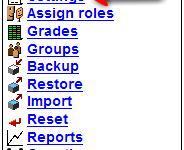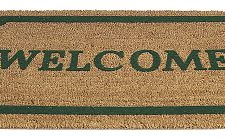Tips for Teachers of Gifted Learners
The gifted learner thrives on challenge, complexity AND choice. This student looks and listens to content in a different way and might wonder if the teacher considers the multiple nuances and different perspectives that could be “essential” to the lesson.
It is common for gifted learners to want to do more […]
Resources for Internet Safety Month

Summer vacation is only days away and children will be faced with more free time than they can imagine. And thanks to the internet, many of our students will be upping their screen time instead of heading outside to play so it’s appropriate that the first month of summer vacation be designated National […]
Teaching Tenacity & Metacognition through Games
Games and objects ground instruction, and provide the basis for experience and mental representation — comprehension. When we have this, we can spend less time decoding and more time discussing printed text. So by writing about accessible narratives such as games, we were more successful when reading related printed text. We had learned […]
What Does a Transformative Classroom Look Like?

To understand what makes a classroom a tranformative place, we might begin by examining four case studies. All four teachers have created what could be characterized as transformative classrooms.
As you read about each classroom, notice their common attributes: clarity of purpose, self-responsibility, bonds among students, and an increasing level of […]
2 Things Teachers Must Do for Effective Classroom Management

A great deal of what we might call classroom management style comes from attitudes and pedagogical choices. Classroom management effectiveness is defined as a learning environment that promotes learning, motivation, and collective function.
Classroom management dysfunction is defined as any event, behavior, pattern, feeling, or thought that prevents a teacher from being […]
Why Use Formative Assessment in Learning

The usage of formative assessments in class as a way to guide instruction and to authentically determine student mastery offers many advantages, far beyond higher test scores. According to Chappius & Chappius (2007), although all formative assessment practices have the potential to increase student learning, assessment for learning in the classroom offers a […]
Teaching Tip: Word Processing
You very likely already use a word processing program quite often. There are many different programs available, including Microsoft Word and Open Office Writer. Most of the word processing programs do much more than just provide a place to type text. They allow you to do simple desktop publishing, make tables, do mail […]
Setting Up a Moodle Classroom

When you first “enter” your new online Moodle classroom, it may seem a bit daunting. Lots of empty space, maybe some course blocks in the sidebars, and in the top section of your classroom will be a resource titled “News Forum”. Before you try to do anything, make sure you turn your editing […]
Accepting Classroom Environment for English Language Learners (ELLs)

The first step in working with students from diverse backgrounds is to create an environment of acceptance so that all students feel welcome, empowered, and ready to learn. Small things that educators do to reach out to students who are ELLs can make a big difference to them while they are learning a […]
Classroom Behavior: ABC Timeline

Behaviors occur over time and therefore are well represented through a sequence. The ABC Timeline refers to behavior elements arranged in a time sequential fashion:
Antecedent
Behavior
Consequence
Antecedent:
One or more environmental factors or events that appear to trigger student behavior. Altering the antecedent may prevent the behavior or make the behavior more likely to occur.
An […]



